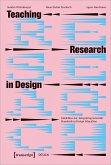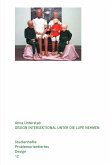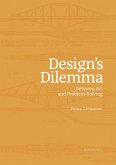Acknowledging the ways in which design (as practices, forms of knowledge, and sets of objects) is accountable for ongoing social and environmental injustices, this anthology contains contributions that envision alternative ways of exploring and designing more livable futures. Attending to these futures requires a reckoning with a multiplicity of actors and contexts, from institutional norms and regulations, to pedagogies, curricula, programs, digital tools, infrastructures, and architectural environments. Last but not least, attention is drawn to the mechanisms and protocols by which these futures are imagined and shaped. This includes critically examining the ways in which design is talked about, taught, and learned in order to empower future designers to engage with the political issues, cultural conditions, and social and environmental implications of their work.
Bitte wählen Sie Ihr Anliegen aus.
Rechnungen
Retourenschein anfordern
Bestellstatus
Storno

![Attending [to] Futures Attending [to] Futures](https://bilder.buecher.de/produkte/67/67233/67233484n.jpg)






